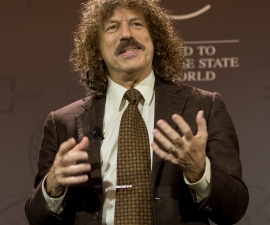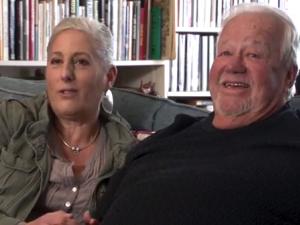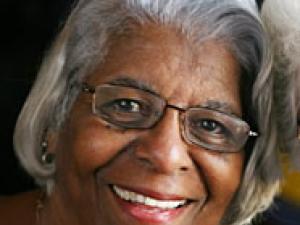

Research Expertise and Interest
aging, gender, culture, brain, psychology, emotion, psychophysiology, marriage, clinical science, interpersonal interactions, dementia, relationships, neurodegenerative disease
Research Description
Robert Levenson's research program is in the area of human emotion, studying the organization of physiological, behavioral and subjective systems; the ways that these systems are impacted by neuropathology, normal aging, and culture; the role that emotions play in the maintenance and disruption of committed relationships; and the impact of providing care for a person with dementia on the health of familial caregivers.
In the News
Sweet Vibes Between Longtime Couples Are Tied to Longer, Healthier Lives
Overcoming pandemic cave syndrome: Why is it so complicated?
‘Eye in the sky’ sensors reduce stress of in-home dementia care
America on edge: Berkeley scholars’ early election thoughts
How can I miss you when you won’t go away? A couple’s survival guide
Hang in there. As couples age, humor replaces bickering
Dementia patients may die sooner if family caregivers are mentally stressed
Forever Valentine: Study shows marriage gets better in old age
UC Berkeley psychologist Robert Levenson looks back on his longitudinal study of 156 middle-aged and older couples in the San Francisco Bay Area who survived the slings and arrows of early wedlock.
Wedded bliss or blues? Scientists link DNA to marital satisfaction
What makes some people more prone to wedded bliss or sorrow than others? Researchers at UC Berkeley and Northwestern University have found a major clue in our DNA. A gene involved in the regulation of serotonin can predict how much our emotions affect our relationships, according to a new study that may be the first to link genetics, emotions, and marital satisfaction.
Meditation beats dance for harmonizing body and mind
The body is a dancer’s instrument, but is it attuned to the mind? A new study from UC Berkeley suggests that professional ballet and modern dancers are not as emotionally in sync with their bodies as are people who regularly practice Vipassana or mindfulness meditation.
Emotional intelligence peaks as we enter our 60s, research suggests
Older people have a hard time keeping a lid on their feelings, especially when viewing heartbreaking or disgusting scenes in movies and reality shows, psychologists have found. But they’re better than their younger counterparts at seeing the positive side of a stressful situation and empathizing with the less fortunate, according to research from UC Berkeley.










